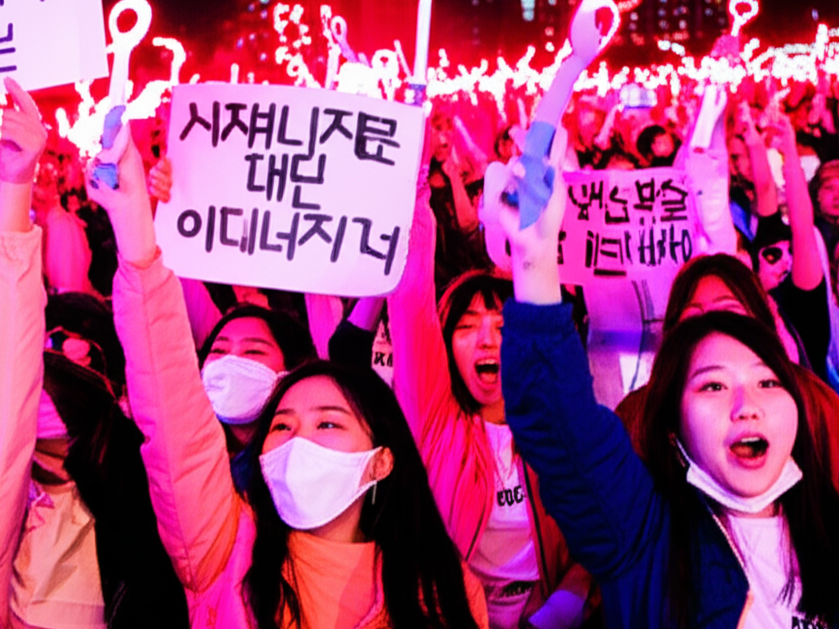The Rise of Young Women in Political Activism
Traditionally, South Korean protests have seen higher participation from older male demographics. However, the anti-Yoon demonstrations witnessed a notable shift, with women in their 20s and 30s comprising a significant portion of the protesters. Data from the Seoul Metropolitan Government and telecommunications company KT indicated that on December 7, 2024, women in their 20s made up 18% of participants, while those in their 30s accounted for 11%, together representing one-third of the total crowd .Korea Herald+1The Korea Times+1
These women brought a unique energy to the protests, incorporating elements of pop culture to amplify their message. K-pop songs like Girls’ Generation’s “Into the New World” became anthems of the movement, with protesters waving light sticks and singing along, transforming the demonstrations into vibrant expressions of collective dissent .Korea Herald+1Constant Contact+1
Motivations Behind the Movement

The surge in female-led activism was fueled by growing frustration over systemic gender inequalities and perceived anti-feminist policies under Yoon’s administration. Yoon’s proposal to abolish the Ministry of Gender Equality and Family, along with his claims that structural gender discrimination did not exist in South Korea, sparked outrage among many women .Korea Herald
Incidents of gender-based violence, such as deepfake sex crimes, further galvanized young women to take to the streets. Many felt that their safety and rights were being undermined, leading to a collective call for change.wwwa.koreatimes.co.kr
The Road Ahead
Despite their instrumental role in the protests, many young women feel their voices are still marginalized in the political arena. The upcoming presidential election on June 3, 2025, features no female candidates among the seven contenders, a stark contrast to previous elections. This absence has left many feeling disillusioned, questioning whether their efforts have led to tangible progress .
Nevertheless, the activism of these young women has reshaped the landscape of political engagement in South Korea. Their determination and innovative approaches to protest have set a precedent for future movements, signaling a shift towards more inclusive and dynamic forms of civic participation.